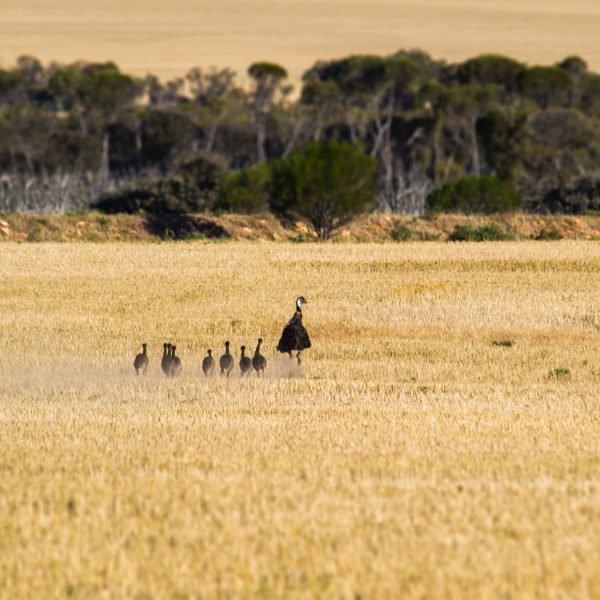Hazelwood lessons are worth hearing as Australian children prepare for another summer

Children living in areas impacted by the 2014 Hazelwood mine fire and smoke event have spoken to Monash University researchers about their experience, offering insights to those working in both the early childhood education and care (ECEC) and broader education sector as to how children may be better prepared for, and supported after, significant bushfire events.
Many of the children involved in the research reported increased anxiety and trauma, while some also identified positive relationships with their families and a strengthening of resilience in response to disasters.
Anxiety manifested as children having trouble concentrating at home and during educational activities, having traumatic dreams of similar events recurring, and generalised anxiety symptoms following the 9 February 2014 event, in which the open-cut brown coal mine servicing the Hazelwood power station in the Latrobe Valley caught fire due to nearby bushfires.
The coal mine fire burned for 45 days, covering Morwell and other communities across the Latrobe Valley with smoke and ash.
As well as experiencing anxiety, some of the children interviewed reported a boost in their relationships and group activities shared with family members, saying they provided a useful distraction and coping mechanism from lingering effects of the smoke.
Fewer children reported a continuation of negative symptoms by the time of the interview, almost two years later, with some indicating the event strengthened their resilience and gave them greater preparedness for future similar events. Others expressed concern about the long-term health implications of smoke inhalation.
Some of the participants in the study were in the early years of childhood at the time of the events, with Monash researchers speaking to 69 children aged between eight and 16 years. Participants were from grades 3, 5, 7 and 9 from seven schools in Morwell and one school in Traralgon, with the data based on the first collection phase which occurred in late 2015.
Importantly, the study demonstrated that the response of core facilities in the child’s life, such as schools, family members and the broader community to the smoke event affected the social, emotional and academic wellbeing of some children – while others experienced little from the event.
The study, ‘Children’s Perspectives on the Impact of the Hazelwood Mine Fire and Subsequent Smoke Event’, lead analyst Dr Emily Berger said, showed the importance of having honest and age appropriate conversations with children on events which impact them.
Those children in the study indicated that they should have “been better informed about the event and bushfires in general” which in turn would have assisted them to cope better with its impacts and enable them to support their peers during this time.
Moving children away from the problem may have reduced the psychological distress of being amongst the fire and smoke, however this movement also impacted learning and academic progress due to reduced attendance and disruption to usual routines, Dr Berger said.
The children in the study reflected on the prolonged and uncertain nature of the event and recalled questioning how long the event would continue and what the health implications would be for them and their families.
“Whether or not it was safe to spend time outside was frequently mentioned by the children, as well as concerns about a lack of information about the event and available support and respite for the community.”
Key findings of the study included:
- Experience of the smoke: children recalled the unpleasant smell of the smoke, the feeling of the ash in their throats and the sky’s orange glow.
- Perceived health effects of smoke: Children spoke about how they had trouble breathing and experienced asthma triggered by smoke inhalation. Pets’ health was also mentioned, with dogs reported to be most impacted. One participant believed her dog had died as a result of smoke exposure.
- Feelings about the event: many children described feeling scared, worried and sad, and concerned about the fire spreading to their home or school. Others said they did not have any concerns at the time or since then. Some children described losing their appetites, reduced concentration, and increased nightmares about the smoke and fire.
- Impact on family relationships: some children and adolescents were aware that their parents struggled to cope during the event. Participants also noted anger and frustration about not being allowed outside and their families receiving little assistance.
- Changes to the school routine: children who relocated schools during this time cited difficulties in relation to adjusting to the new school setting resulting from changes in scheduled break times and new transport arrangements. Other children mentioned positives such as making new friends.
- Use of coping strategies: children adopted calming activities like listening to music and engaging in breathing exercises, playing games and helpful self-talk.
“This study illustrates how important insights from children and adults, in response to trauma, can be integrated into future disaster preparation, response and rehabilitation strategies,” lead of the Hazelwood Psychological Impacts stream, Dr Matthew Carroll added.
“It is particularly important to consider the impacts of prior events like the Hazelwood mine fire when looking at how the community coped with the major fires over last summer and how they are coping now during the COVID-19 pandemic with the associated impacts of remote schooling and other restrictions,” he said.
The Victorian Department of Health and Human Services funded the research, as part of the broader Hazelwood Health Study. The paper presents the views of the authors and not the Department, and may be accessed here.
Popular

Policy
Quality
Practice
Provider
Research
Workforce
ECEC services to close early for mandatory child safety training under national reforms
2025-12-01 07:10:09
by Fiona Alston

Quality
Policy
Practice
Provider
Workforce
Growth restrictions and enhanced oversight imposed on Affinity Education Group in NSW
2025-12-01 07:30:29
by Fiona Alston

Workforce
Events News
Policy
Practice
Provider
Quality
Gold Walkley Award win for childcare investigation places national spotlight on safety and accountability in ECEC
2025-12-02 07:30:34
by Fiona Alston
















